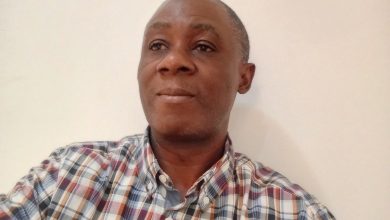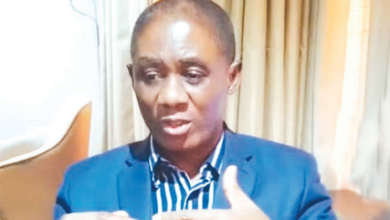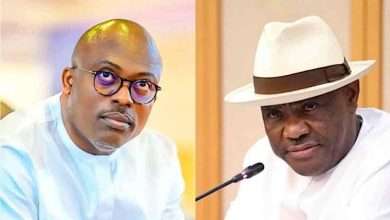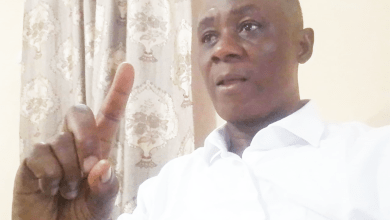PIA unjust, will create more problems –MOSOP president, Nsuke
Fegalo Nsuke is the president of the Movement for the Survival of the Ogoni People, MOSOP. He spoke with EMMANUEL MASHA on the petroleum Industry Act (PIA), the cleanup of Ogoni land, the financial award to the community by the court and other issues affecting the people. Excerpts…
You have in the last three years consistently raised issue with the water project in respect of the Ogoni cleanup, what is the situation now?
The water project approved by the Nigerian government was a welcome development; but the issue remains how they will implement it. The government is not liaising with us, the Ogoni people. All they do is what they feel like doing and then we just learn about them on the pages of newspapers. What we asked for is an integrated water project and we are aware that HYPREP approved that plan as far back as 2016 but what the government plans to do now is what we do not know. There is, however, no seriousness to make us feel they wouldn’t do the usual thing by shortchanging community interests in the water project. We won’t be surprised if tomorrow they fix some boreholes in communities and put in on some newspapers that the water projects are already completed. You have also consistently faulted the operations of Hydrocarbon Pollution Remediation Project
(HYPREP), especially the manner in which jobs are awarded to companies for the clean-up, has the situation change now?
HYPREP is a fraud and corrupt, it stinks. I insist that HYPREP ridden with corruption. The contracts for the clean -up projects were awarded to unqualified firms. The clean -up they say they are doing is only a cover up project and we are kept away from it because they do not want our supervision. The only time they want us around is when they want endorsements and since they were unable to get that they have remained highly secretive about their work. The cleanup itself is not visible in the communities where massive pollution has occurred. So you just find that the works of HYPREP are more visible on the pages of newspapers and not what we can see in the communities.
How this prevailing situation be addressed?
I think the work of HYPREP should be pretty simple. There is a report and a layout provided by the report. The starting point should have been the provision of water. That was never done and they have told us that they have already completed remediation in some communities. There is a problem when we just see news reports of projects completion meanwhile we did not know when they even began the work. What we see and feel is deception. Secondly, there should be compensation for the destruction of livelihood sources. How can you remediate without compensating those whose lives you seriously set back by destroying what they live on? Then the last stage should have been to properly clean – up the mess. Whichever way they follow the process, all these components should have been taken care of. But in the usual sneaky way of Shell, they will always try to avoid doing the right things. Notwithstanding the shortcomings we expected them to follow the recommendations and implement the report. If there will be need for changes based on current realities then the people should understand that. That requires that HYPREP should be transparent but unfortunately the reverse is the case.
Opposition from MOSOP and other Ogoni stakeholders led to the removal of Marvin Dekil from HYPREP, now if you are made the head of the team, what should the people expect from you within three month?
First of all, the sack of Marvin Dekil has not made any difference. We have not seen the transparency we demanded and there is no real activity going on in the communities. So nothing has changed. Now, what we expected from the project management office is to set the records straight, make the process transparent and abide by the guidelines it has set and not set standards and flout those standards. For example, the companies participating in the clean – up process are supposed to have some practical experience of about 10 years but we saw companies that were incorporated in less than two years participating and winning the contracts without any experience at all. We saw companies that were incorporated for palm oil processing and supply of stationary winning the contracts. That is why we say the integrity of the clean-up had been seriously compromised; it had been used for political patronage and not to restore the polluted lands in Ogoni. I will expect the project management office t o f o l – low the recommendations of the report, set up the Integrated Soil Management Center and the Centre for Excellence to support the implementation of the project and communicate adequately with the communities where they work.
There have been several claims by you that the federal government wants to resume oil exploration in Ogoni, a development MOSOP is opposed to, what informed these claims?
MOSOP is not completely against oil production in Ogoni. What we have said is that in a situation where over 4,000 persons have been killed by Shell and the government in a bid to force oil production in Ogoni, we think that at this point, we should go into some proper negotiations to forestall further killings. MOSOP led the struggle which forced Shell out of Ogoni and so we also feel if oil production will resume, MOSOP should be properly intimated so that we can discuss and agree on the modalities. Our major point is that we do not want any Ogoni person killed again because of oil. They have killed enough. But when they try to force these things, it prompts spontaneous protests and the government rolls out the soldiers who end up killing our people and we do not like that. MOSOP has also given a proposal contained in its recommendations for the implementation of the Ogoni Development Authority which had been approved by the Central Committee of MOSOP. So we are ready to genuinely engage if they are serious about oil resumption. The fact is that oil resumption in Ogoni is very sensitive and the people want to know what MOSOP is saying. For now, we have not approved any company to resume oil production in Ogoni, however, we are willing to engage to reach an enforceable agreement and to avoid any conflicts.
If truly the federal government wants oil exploration to resume in Ogoniland, without engaging Ogoni people as you usually put it, what are the likely consequences of such action?
That will mean they have decided to kill Ogonis, imprison as many people as they wish and that will be genocide. One thing they can be sure of is that whoever will take that decision or those who will be responsible for the genocide will certainly be held to account for their actions.
Given the present economic situation in the country, with unemployment on the rise, how much longer should the people wait before what some have termed the Ogoni economic blockade is removed by MOSOP?
It is important that we get clear that oil production does not create jobs. Once the pipelines are laid, employment is limited to security, labourers and cleaners. What creates jobs is where the money derived from sale of oil is invested. Ogoni is interested in that because you cannot be taking so much and leave the people empty while the money from our oil and gas resources are working for other regions of the country. That is the injustice we protested against and should be addressed.
A few days ago, President Muhammadu Buhari signed the PIB into law, what is the stance of MOSOP on that?
What has now become the PIB Act is an unfair law and it is this unfairness MOSOP has always protested. We simply want some fairness in our system. Believe me that law will create more problems because it is an unjust law. I can say that one thing we cannot pretend about is that implementing a bad law is always problematic. Look at it this way, Shell for instance, which is the biggest oil firm in Nigeria, has always blamed the communities for all spills. Now, NOSDRA is saying that an average of five spills occur daily. So you see that they will use up the community portion and even claim that they have spent 10 per cent of their income on remediation. At the end of the day, the villagers get nothing. But this does not apply to the Solid Minerals Act. I think this country should not just serve the interest of the Hausa/Fulani, Yoruba and Ibo, it should be our country and work for everyone.
You have described the N45 billion settlement against Shell as hope for Ogoni, why are you optimistic about it?
The court case against Shell is a third major victory for the Ogoni. The first was the Bodo case, the second was the UNEP report which was the first official and scientific evidence confirming and justifying our protest of Shell’s genocide against the Ogoni. The recent judgment gives us hope because we now see the judiciary as another window open to us to seek redress. We hope to explore that because the facts abound on the deprivations, discrimination and unfair treatment we have suffered in Nigeria as a people.




